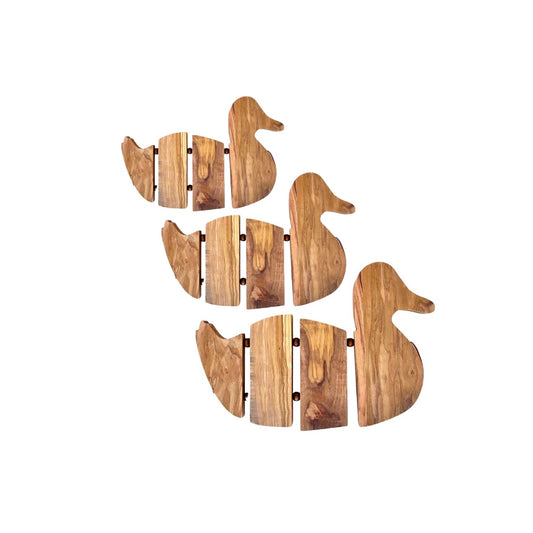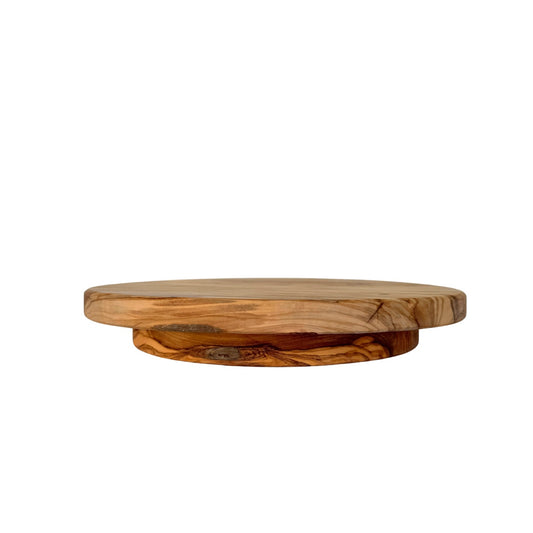Holy Land Handicraft Cooperative
The Holy Land Handicraft Cooperative, a certified-fair trade cooperative based in Beit Sahour near Bethlehem, works to alleviate poverty and assist artisans in the marketing of products. The cooperative was founded in 1981 and has 36 member workshops. They work to increase income levels, decrease emigration, and sustain the Palestinian handicraft industry by effectively marketing members' products, making raw materials available at a low cost, and helping to develop technical and managerial expertise.
Approximately 2,000 individuals benefit from the Cooperative’s activities. As a guaranteed World Fair Trade Organization (WFTO) member, they sell their products mainly through Fair Trade channels to customers all over the world.
A valuable wood species, olive wood is harvested from olive trees that are no longer bearing fruit. Olive trees are never harvested solely for wood since olive fruit is a valuable agricultural commodity.
The use of olive wood dates back thousands of years. The idea of manufacturing tourist products first appeared with the arrival of pilgrims from abroad who frequently came to visit the Church of the Holy Sepulcher in Jerusalem and the Church of Nativity in Bethlehem. According to tradition, skillful fifteenth century artists from Italy brought their skills to Bethlehem, where the men quickly learned and excelled in the art.
The art of carving is a very detailed and difficult process. After the olive wood is gathered, carvers cut the wood into smaller pieces. This is done so all the carvers have more control over the wood when they begin carving. The carving process requires several stages. In the primary stage, the wood is carved in an abstract form. Once an abstract form has been created, gifted craftsmen carve details such as the face and the body. After the carvers have finished carving, they will smooth the object with sandpaper to take off the rough surfaces and edges. Once the work has been sand-papered, it is sprayed with special lacquer to protect the wood and keep it shiny.
The olive is a beautiful tree, unique because of the many different grains in the wood. The lacquer used helps to make the grains shinier and more apparent.
The society aims to preserve the handicraft traditions of the area for the benefit of future generations of Palestinians, especially the olivewood tradition which was first developed because of the local availability of the raw material and the demand by pilgrims for religious icons. The Holy Land Handicraft Cooperative Society believes that Fair Trade is a tool to reach their aspiration for peace in the region.






